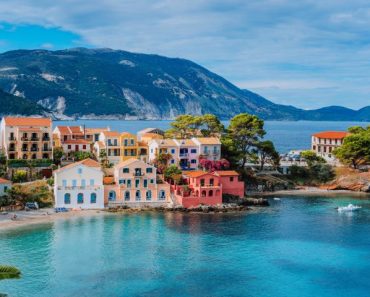Wine production on a popular Greek island faces an existential threat from mass tourism.
Vines have been cultivated on the island of Santorini for over three thousand years, and winemaking is traditionally an important economic activity.
However, the land used for vine cultivation has drastically dropped since the last century.
While 3,000 hectares were under cultivation in the 1960s, just under 1,000 remain covered by vines today.
One of the main reasons for the decrease is the ever-expanding tourism sector.
Developers have been buying up land as they look to build more villa complexes, hotels and restaurants.
As a result, vineyards have been snapped up by construction firms and covered in concrete.
“The construction of tourism developments is threatening the unique landscape of the island,” Markos Kafouros, a local MP and the chairman of Santo Wines, told the Telegraph.
Islanders have for centuries used a unique method to grow their vines, known as the “ambelia”.
The plants are pruned to form a low vegetable basket where grapes are protected and mature without being damaged by sand carried by the wind.
Santorini has seen an explosion in the number of cruise tourists, with thousands visiting the island daily during the peak summer season.
Last year, the Cyclades island experienced as many as 16,000 to 17,000 cruise passengers on one day alone.
Authorities on the island say they want to reimpose a cap of no more than 8,000 cruise passengers in a single day.
Santorini’s mayor, Nikos Zorzos, warned in May that overtourism was causing environmental degradation and a loss of local character.
And in August, speaking about the pressure on the island created by cruise ship arrivals, he told the Guardian: “There have been times when the pressure is unbearable.
“Everywhere jam-packed with people who have no time to stop, no time to enjoy, who are actually full of angst because they are so rushed.”







